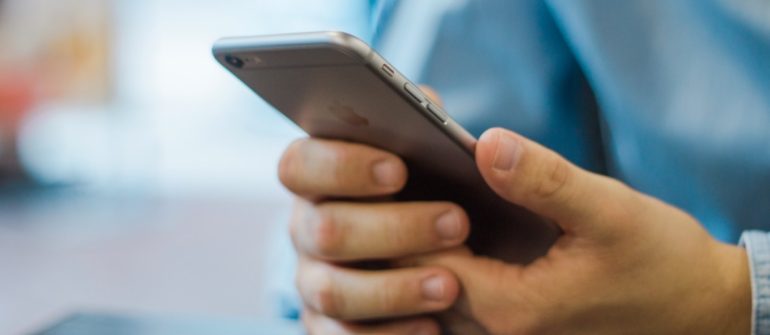AMSkier Broad & Bright articles are SKI-Way articles that have been opened to the public. Full access to SKI-Way articles, podcasts and other media is exclusively available to AMSkier camp clients. Interested in becoming a client? Tell us about you and your camp!
TWN: SOCIAL INSOMNIA?…ANOTHER REASON TO PROHIBIT ELECTRONICS AT CAMP?
 Norman Friedman, M.Ed.
Norman Friedman, M.Ed.
June 12, 2011
The Little Hawk, a Iowa High School newspaper was mailed to me by Max Friedman, the co-editor of the publication who also happens to be the author and my 16 year-old grandson. His front page article, as you will note serves as documentation of a rather serious cultural phenomenon that is carefully researched and spelled out. I wish to share it with you not only as a proud grandfather but more importantly another good reason to continue prohibiting electronics of any kind at camp this summer. Without exception, our feedback from camp directors who have taken a very firm stance with campers and parents report success. Surprisingly, many campers enjoy the freedom it offers not to be connected.
Social Insomnia by Max Friedman
The buzzing, beeping and blinking lights of the latest technology surround the typical teenager, creating a cocoon of electricity. “I’m always texting, even when I do my homework,” Kristen Figueroa ‘12 said. “I check my Facebook page all the time.” Advanced technology has become common-place in our society, most notably among teenagers. Cell phones, computers, music players and various other gadgets are all around. The excessive use of technology has proven to keep teens up late at night, causing sleeping problems. “I usually stay up until 1 o’clock, sometimes 2,” Summers Stokes ‘15 said. “I wake up a lot during the night, and I get woken up by texts a lot too. ”In 2010, a study was conducted by Dr. Peter Polos at the John F. Kennedy Medical Center in Edison, New Jersey with a group of people from ages 8-22. The study monitored the amount of texting that these 40 people did over the course of a month. The results showed that 3400 texts were sent in a month, about 100 every day. Of these 100, there was an average of 34 texts sent at night, after the subjects were supposed to be asleep. According to a 2011 City High Poll, 50% of students reported sending between 30 to 90 texts every day, and 74% of students reported checking either their Facebook or Twitter accounts every day, usually more than once. When students were asked if they used these technologies before bed, 66% said yes. Furthermore, when students were asked if they stayed up later to answer texts and go on Facebook, 43% said yes.
Technologies like texting and Social Media are new, exciting, and easily accessible to teenagers. “If you witness something horrific, you’re going to have post-traumatic stress and insomnia, you won’t be able to sleep,” Dr. Eric Dyken, professor of Neurology and Sleep Disorders at the University of Iowa said. “When something exciting happens it has the same effect, you won’t be able to sleep.” The real problem lies in Sleep Deprivation, according to Dr. Dyken. “It’s simple, if you don’t get enough sleep, you will be sleepy,” Dr. Dyken said. “This sleepiness can lead to things like car accidents, but more importantly it will affect your overall performance in school.” If students stay up too late, they won’t have enough energy to focus in class and do all of the things that the busy teenage life entails.
Late-night texting has also shown to cause other problems. “People that used texting also experienced more insomnia, leg cramps and learning disabilities like ADD,” Dyken said. Dyken isn’t suggesting that people stop using this technology before bed all together, but rather a way to regulate your sensory intake. “You need a way to wind down.” Dyken said. “In my family, we read comic books.” This “winding down” that Dyken refers to is a form of CBT or Cognitive Behavioral Therapy. CBT is essentially the combination of acknowledging the thoughts that prevent one from falling asleep, and the method of preparing oneself for sleep. Dyken’s family reads a comic book before bed to get away from the stresses of life, and help them doze off after a long day. “I got my idea from Dr. Breus,” Dyken said. Dr. Michael J. Breus is known as “The Sleep Doctor” for his extensive studies with sleep and CBT. Breus recommends that people have good sleep hygiene or a system of preparing for sleep. For Dyken, the system consists of delving into a comic book, but he realizes that it’s not for everyone. “Breus’ idea is a construct to build off of,” Dyken said. “You can take the idea and make it your own.” While texting and social media have revolutionized the way our world communicates in many positive ways, they have been proven to cause sleeping problems with teenagers. Technology is stimulating, and will hinder normal sleeping patterns. “This technology revs up your stimulatory system and if you use it before bed, you will stay up late,” Dr. Dyken said.
Please share your comments, suggestions, and opinions about this article and my continuing recommendation about electronic free summers for young people fortunate enough to experience life as you choose to design it at your intentional communities. As always, your reactions both pro and con are important to us.


